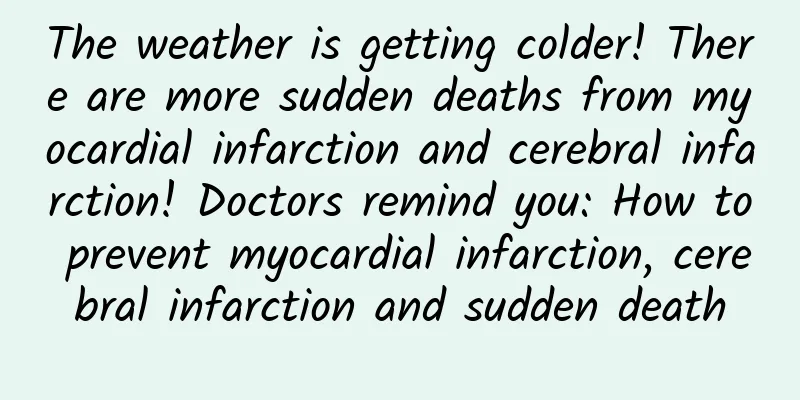Why do people get carsick? Definition of motion sickness

|
In daily life, with the rapid development of science and technology, people now travel very conveniently. They can take a car without even walking a step. These means of transportation have brought great convenience to people's lives, but it is not so good for some special groups of people, that is, people who get carsick. So, why do people get carsick? What should you do if you get carsick? Next, let's take a look at the relevant knowledge about carsickness with Encyclopedia Knowledge Network. Contents of this article:
Why do people get carsick?Once directly stimulated by vibration and shaking, the human inner ear cannot adapt and adjust the body's balance well, resulting in overexcitement of the sympathetic nerves, which can easily cause symptoms such as dizziness and vomiting. Different people get dizzy in different means of transportation, and some people are prone to reactions even to the slightest shaking, which is often painful. Motion sickness disease definitionMotion sickness, also known as motion sickness, refers to what people usually call "carsickness, seasickness, airsickness", etc., including space sickness that occurs under microgravity conditions. It is a series of physiological reactions caused by various factors that lead to the human body's incorrect perception of motion status. It is common when riding in public transportation, and symptoms include dizziness, nausea, vomiting, upper abdominal discomfort, pale complexion, cold sweats, etc. The symptoms usually resolve after stopping riding and do not pose a life-threatening threat. Frequently asked questions by people with motion sicknessWhat causes motion sickness? The human body mainly senses the body's movement and controls balance through the vestibular system, eyes and body sensory system. When the different sensory systems of the human body receive inconsistent information about movement, conflicts occur and motion sickness occurs. For example, when we are riding in a car, our body feels the bumpy movement, but our eyes see the interior of the car as relatively still. The vestibular system in the ears senses different information. The brain then receives mixed information, causing conflicts and causing the body to experience discomfort such as dizziness, nausea, and vomiting. What are the common symptoms of motion sickness? When patients take transportation such as ships, airplanes, and cars, they mainly experience dizziness, headaches, nausea, vomiting, pale complexion, etc. These symptoms often subside or even disappear within a dozen minutes or a few hours after stopping exercise. Can motion sickness be completely cured? There is no cure for motion sickness with mild symptoms. The symptoms can be effectively relieved or disappear by leaving the disease-causing sports environment, that is, stopping taking public transportation, and there are generally no sequelae. The purpose of prevention can be achieved by taking medicine in advance, but the symptoms of motion sickness will still appear as soon as you take public transportation again. Motion sickness triggersWomen, especially pregnant women, are more susceptible to this disease, which may be related to pregnancy hormones. Studies show that the incidence rate is higher in children around 12 years old. For patients with migraine, studies have shown that it may be related to the trigeminal nervous system. Certain directions of motion, such as the amplitude of low-frequency lateral and vertical motion, are associated with motion sickness in a study of airplane passengers. Environmental stimulation, high temperature, high humidity and confined space can easily induce motion sickness. Disorders that alter vestibular or visual sensory information (such as labyrinthitis) or that increase the brain's sensitivity to sensory stimuli (such as migraine) are associated with motion sickness. Psychosocial factors – Expectations and other psychological factors may influence the risk of motion sickness. Typical symptoms of motion sicknessWhen patients take transportation such as ships, airplanes, and cars, they mainly experience dizziness, headaches, nausea, vomiting, pale complexion, etc. These symptoms often subside or even disappear within a dozen minutes or a few hours after stopping exercise. Motion sickness can be divided into three types: mild, moderate and severe according to the severity of the symptoms. Mild: Symptoms include mild dizziness, headache, slight nausea, slightly pale complexion, increased drooling, drowsiness, etc. Moderate: Symptoms include dizziness, worsening headache, nausea, vomiting, pale complexion, cold sweat, etc. Severe: severe dizziness, nausea, palpitations, chest tightness, cold sweats, severe vomiting, cold limbs, and in severe cases, dehydration, difficulty breathing, slow reaction, a sense of impending death, coma, etc. 6 tips to help people who suffer from motion sickness and prevent them1. Fresh ginger slices Cut a few slices of fresh ginger at home and bring them with you. When driving, hold the fresh ginger slices in your hand and put them under your nostrils at any time to inhale the spicy smell. Alternatively, you can stick the fresh ginger slices on your navel and fix them with gauze, band-aids, or pain-relieving plasters. 2. Vinegar Drinking a glass of warm water with vinegar before riding can effectively prevent motion sickness. 3. Orange peel or essential oil When taking the bus, we should fold the orange peel outwards at least one hour before and squeeze some orange juice into our noses, which can effectively prevent motion sickness. You can also apply some Fengyoujing around your temples, which has a good refreshing effect and can also relieve fatigue, which is also a good preventive effect for motion sickness. 4. Don’t eat too much before getting on the bus It is recommended that people do not eat too much before getting on the bus, because if you eat too much, the vehicle will be bumpy, so people will feel uncomfortable. Eat less before getting on the bus, so that you can maintain a good mental state. It can also solve the problem of motion sickness. When you are on the bus, don't look around, try to close your eyes and rest, so as to avoid motion sickness. 5. Don’t play with your mobile phone or read newspapers or magazines. Try not to play with your phone, read newspapers or magazines on the bus, as these can easily cause motion sickness. Try not to look at the swaying and passing scenery outside the window to avoid being dazzled and causing dizziness and discomfort. 6. Sit close to the front window. The front seats reduce bumps, and you can breathe fresh air by the window, which also provides a wide field of vision and reduces the dizziness caused by the confined space. When sitting in a car, make sure your body is facing the same direction as the car is traveling. |
>>: What is aerobic exercise? What are the benefits of doing aerobic exercise?
Recommend
Symptoms before menarche
Girls usually have their first menstrual period d...
Can I get pregnant normally with a small uterus?
Pregnancy is the main concern of every woman afte...
Breastfeeding: one breast is bigger and the other is smaller
During breastfeeding, the mother's body will ...
What sleeping position can relieve dysmenorrhea?
The pace of social development is very fast, whic...
What are the diet recipes after miscarriage
The body of a pregnant woman is very fragile afte...
Parents should be alert to the misunderstandings in treating children's "cold and cough"
Myth 1: Treat asthma like a cold Many parents of ...
There is a small lump next to the uterus
The uterus is a very important organ for women. O...
Solutions to women's genital odor
Many female friends are most afraid of having unp...
What are the reactions during menopause?
When women reach middle age, they will enter meno...
Why does a woman's period come back a week after it ends?
Menstruation can be said to be a symbol of femini...
Many places may reach "infection peak" around the Spring Festival! Please keep this guide to returning home for the Spring Festival!
How to protect yourself when you return home? Wha...
Why is leucorrhea itchy and painful?
Secretion is the liquid secreted from a woman'...
The fallopian tube is blocked on one side due to adhesion
There are many reasons for fallopian tube adhesio...
Why does my breasts keep hurting after my period?
During the menstrual period, the hormones in wome...









